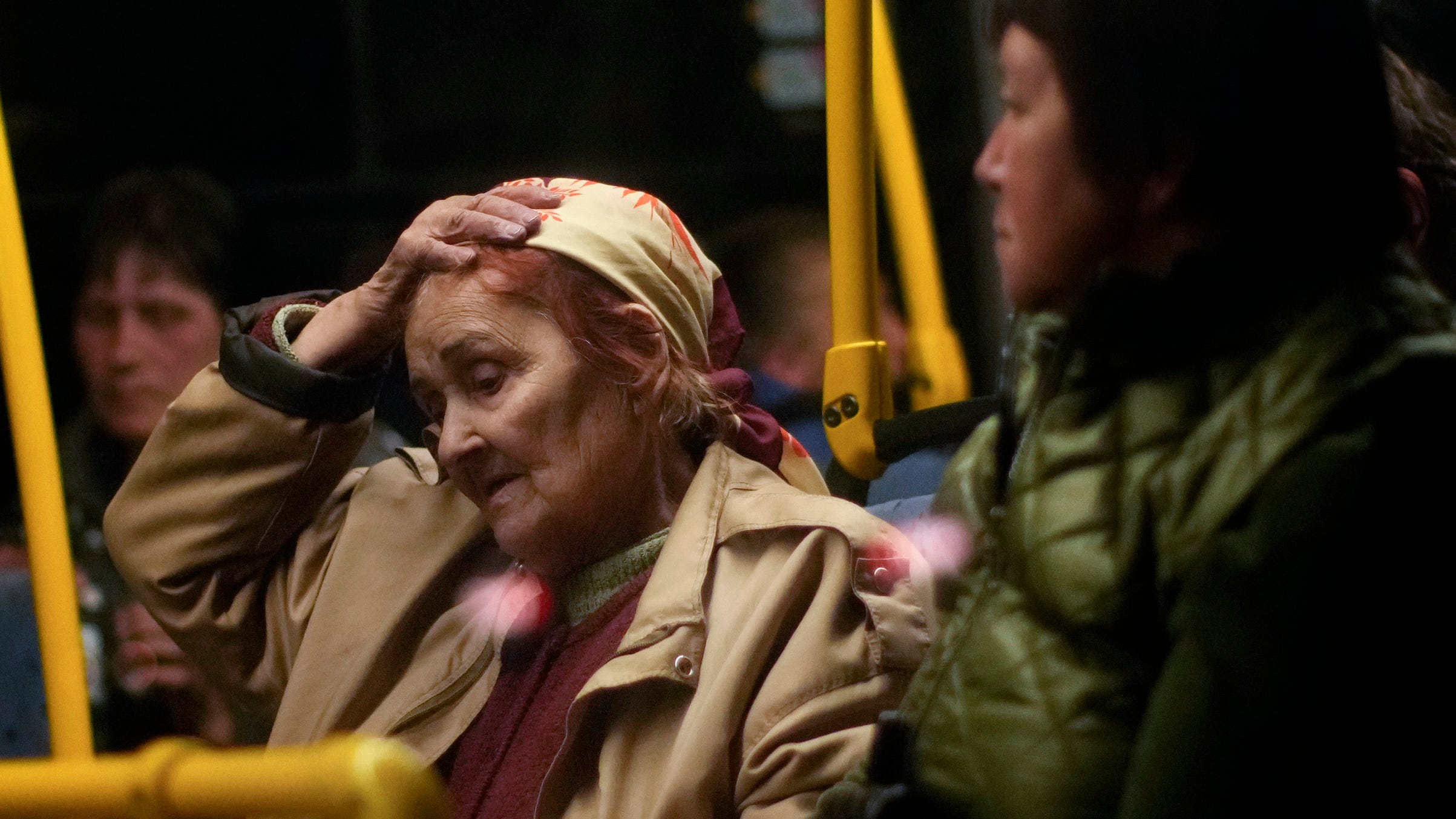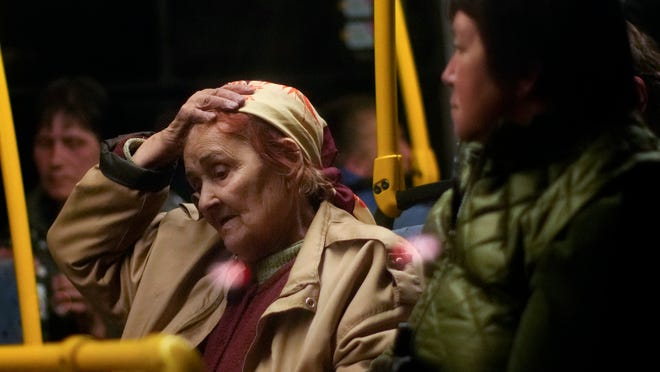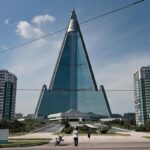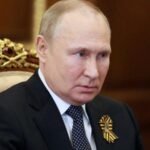A veteran Russian diplomat to the U.N. Office at Geneva resigned his post Monday, saying he is “ashamed” of his country’s invasion of Ukraine.
Boris Bondarev, 41, confirmed his resignation in a letter delivered Monday morning at the Russian diplomatic mission blasting the “aggressive war unleashed” by President Vladimir Putin in Ukraine.
“For twenty years of my diplomatic career I have seen different turns of our foreign policy, but never have I been so ashamed of my country as on Feb. 24 of this year,” he wrote.
Russia invaded Ukraine on Feb. 24. Bondarev, who has recently been working on Russia’s role in the Conference on Disarmament in Geneva, told the Associated Press he is concerned about Moscow’s response to his letter.
“Not all Russian diplomats are warmongering,” he said. “They are reasonable, but they have to keep their mouths shut.”
Latest developments:
►The Russian military on Monday released footage of de-mining specialists working at the Azostal steel mill in Mariupol. Russia’s Defense Ministry told state-run RIA Novosti news agency that more than 100 explosives were destroyed since the final Ukraine holdouts surrendered.
►Russia pressed its offensive in eastern Ukraine on Sunday as Polish President Andrzej Duda traveled to Kyiv to support Poland’s European Union aspirations, becoming the first foreign leader to address the Ukrainian parliament since the start of the war.
►German chancellor Olaf Scholz has said he will “work actively” to enable grain exports from Ukraine and to supply fertilizer to Ukraine, Reuters reported. Russia has blocked Black Sea ports that are vital to exporting Ukrainian wheat and other crops, fueling rocketing prices.
Russian POW sentenced to life in prison for killing Ukrainian civilian
The first trial of a Russian soldier for war crimes in Ukraine since the invasion concluded Monday with Sgt. Vadim Shishimarin, a 21-year-old from Siberia, sentenced to life in prison for premeditated murder and violating international laws for war.
Shishimarin, a captured Russian tank-unit sergeant, fatally shot Oleksandr Shelipov, a 62-year-old civilian, in the head in late February. Shishimarin had pleaded guilty, but his defense had argued he was carrying out a direct order that he initially disobeyed.
Last week Shishimarin had asked Shelipov’s widow, Kateryna, for forgiveness. She said she wanted a life sentence to be handed down, but also that she would be willing to see Shishimarin returned to Russia in an exchange for Ukrainian fighters who surrendered to Russian forces at the Azovstal steel plant in Mariupol.
During the trial the three-judge panel heard that Shishimarin was ordered to kill the man so he wouldn’t be able to report them to Ukrainian military authorities. Shishimarin fired his Kalashnikov rifle at the victim through the open window of a car.
“I was nervous about what was going on. I didn’t want to kill,” Shishimarin said at the hearing in Ukraine’s capital Kyiv. Judge Serhiy Ahafonov said he did not consider the defendant’s remorse sincere.
Swedish PM cites ‘positive’ call with Erdogan over NATO membership
Negotiations with Turkey on Sweden’s membership to NATO will take more time, but a recent phone call with Turkish President Recep Tayyip Erdogan was “good and positive,” the Swedish prime minister said Monday. Magdalena Andersson told Swedish official news agency TT she was looking forward to the upcoming negotiations with Ankara. Edrogan has taken issue with Sweden and Finland, citing their alleged support for the banned Kurdistan Workers’ Party, or PKK and other groups that Turkey views as terrorists. Andersson said Sweden was one of the first countries that classified the PKK as terrorists.
Sweden and Finland formally applied to join NATO last week – a decision spurred by Russia’s war on Ukraine. Unanimous consent of all NATO members is required for new members. Erdogan has made few references to Finland amid reports that most of Turkey’s grievances are directed at Sweden, which has a large community of Kurdish exiles.
Russian casualty rate high – and rising, British assessment says
In the first three months of its “special military operation,” Russia has likely suffered a similar death toll to that experienced by the Soviet Union during its entire nine-year war in Afghanistan, the British Defense Ministry said in its latest assessment of the war in Ukraine. About 15,000 Russians died in the Afghan war that ended in 1989.
“Poor low-level tactics, limited air cover, a lack of flexibility, and a command approach which is prepared to reinforce failure and repeat mistakes has led to this high casualty rate (in Ukraine), which continues to rise in the Donbas offensive,” the assessment says.
The Russian public has, in the past, “proven sensitive to casualties suffered during wars of choice,” the assessment says. As the death toll rises and the human cost becomes more apparent, public dissatisfaction with the war and a willingness to voice it may grow, it says.
Fighters who surrendered at steel mill to face ‘international tribunal’
The head of the self-proclaimed Donetsk People’s Republic in eastern Ukraine says almost 2,500 fighters from the Azovstal steel mill captured by the Russian forces will face “international tribunal” there. Denis Pushilin was quoted by the Interfax news agency as saying that “at the moment the charter for the tribunal is being worked out.”
Family members of the fighters taken prisoner at the mill have pleaded for them to be given rights as prisoners of war and eventually returned to Ukraine.
Ex-Defense Secretary: Russia unlikely to use nuclear weapons
Even with the war in Ukraine going much worse than expected for Russia, the probability of Russian President Vladimir Putin deploying a nuclear weapon is “low but not zero,” former U.S. Secretary of Defense and CIA Director Robert Gates said Sunday. Speaking on CBS’s “Face the Nation with Margaret Brennan,” Gates said Russia’s use of a tactical weapon would prompt a strong response from the West.
“The other thing that I hope somebody around Putin is reminding him is that, in that part of the world, and particularly in eastern Ukraine, the winds tend to blow from the west,” Gates said. “If you set off a tactical nuclear weapon in eastern Ukraine, the radiation is going to go into Russia.”
Gates, who served as defense secretary under Republican President George W. Bush and Democratic President Barack Obama from 2006-2011, said the Biden administration should have started arming Ukraine for a conflict with the Russians months earlier. But he gives President Joe Biden high marks for rallying the U.S. allies and assembling a coalition to confront Russia, resisting calls for a no-fly zone – which would require deeper intervention – and for refusing to bite on Putin’s nuclear threats.
Gates pointed out that sanctions from the West and failures on the battlefield have dealt a major blow to Russia and its global standing. “Putin will remain a pariah,” Gates said: “He has put Russia really behind the eight ball economically, militarily, and because now people are going to look at the Russian military and say, ‘You know, this was supposed to be this fantastic military. Well, they give a good parade, but in actual combat, not so hot.'”
Biden, Harris on Russia’s banned list, but not Trump
Russia has permanently barred nearly 1,000 Americans from entering the country in response to the United States’ support of Ukraine in the war, and the list includes numerous elected leaders but conspicuously leaves out a prominent one – former President Donald Trump.
President Joe Biden, Vice President Kamala Harris, Secretary of State Antony Blinken, Senate Majority Leader Chuck Schumer, House Speaker Nancy Pelosi and House Minority Leader Kevin McCarthy were among the 963 banned by Russia, a largely symbolic gesture.
Recent living former presidents like Barack Obama and George W. Bush were not on the banned list, but Trump’s name stands out as he has frequently been accused of being too cozy with Russian President Vladimir Putin. Two days before the Feb. 24 invasion, Trump referred to Putin’s strategy toward Ukraine as “genius” and “savvy.”





